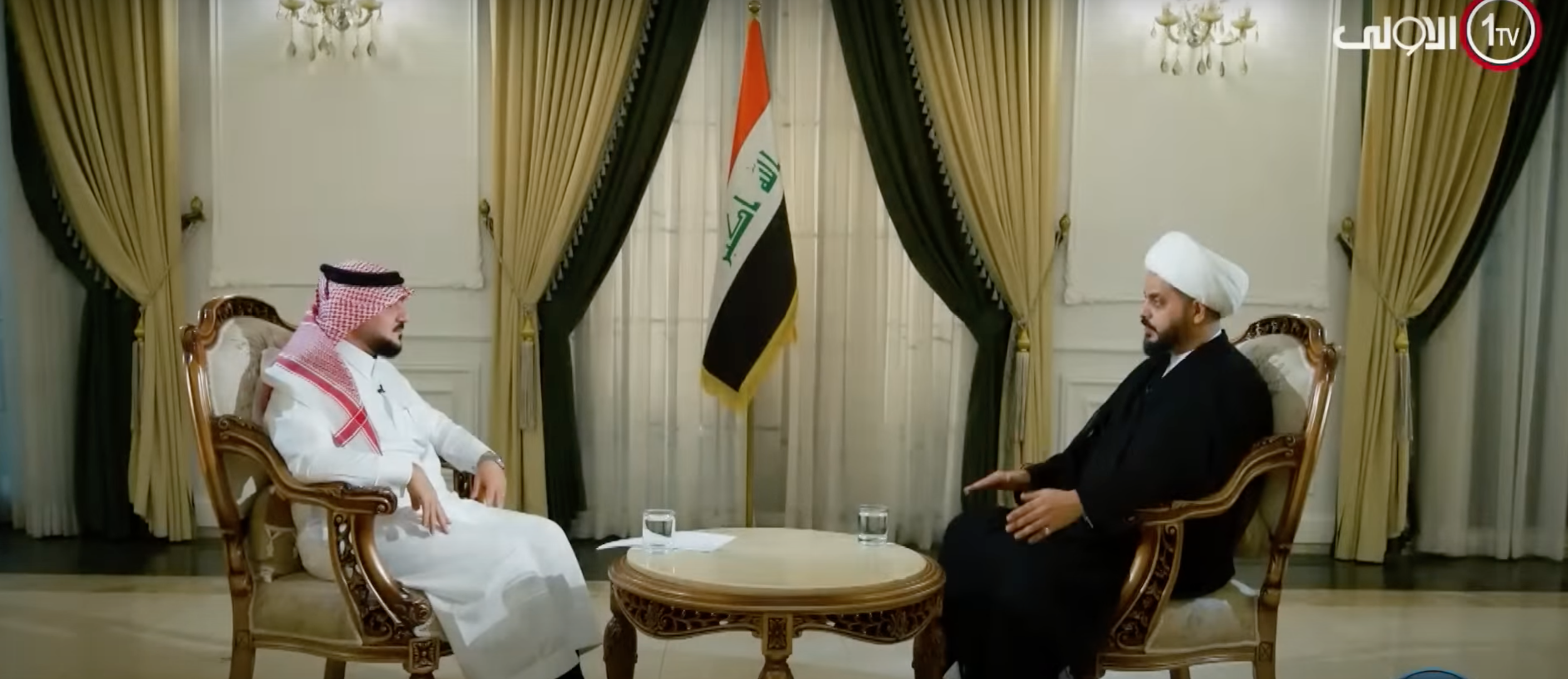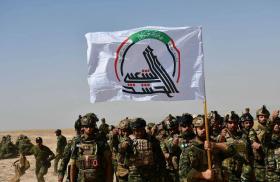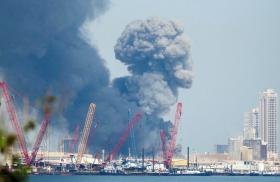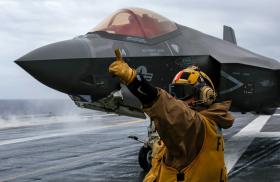Qais al-Khazali Praises His “Honorable” Role in Murder of Americans
The senior political and "resistance" figure is still trying to legitimize the cold-blooded murder of unarmed Americans in the 2007 Karbala raid.
In a May 29 interview with Alawla TV (Figure 1), cleric and political leader Qais al-Khazali—the key Coordination Framework player behind Iraqi Prime Minister Mohammed Shia al-Sudani’s rise to power—
lauded his past role in the kidnapping and murder of five Americans. A U.S.-designated terrorist and human rights abuser, Khazali currently heads the terrorist group Asaib Ahl al-Haq (AAH).

Differentiating Himself from Ahmed al-Sharaa
The context of Khazali’s statement was a question about Syria’s acting president Ahmed al-Sharaa. Recently, various Coordination Framework factions stopped Sharaa from attending the Arab League summit in Baghdad, citing his past terrorist activities in Iraq.
The interviewer quoted one of the godfathers of Iran-backed militias in Iraq, Izzat al-Shahbandar, who noted that Sharaa had recently asked, “Sheikh Qais and I were in the same prison camp, so why am I a criminal and he is a resistance [fighter]?” This refers to the overlapping period in the mid-late 2000s when both men were held in Camp Bucca, the U.S.-run maximum security detention facility in Basra, Iraq. When asked to respond to Sharaa’s question, Khazali replied:
The prisons of the American occupation held people on various charges. One person was arrested for attacking American forces and this is an honorable cause. Another was arrested for attacking the [Iraqi] security forces, [and] that is not honorable. The difference between him and me is that I was arrested for resisting the American occupation and for the famous Karbala operation. I was not charged with attacking the Iraqi forces, whereas one of [Sharaa's] charges was attacking the Iraqi security forces.
Khazali’s Role in the Karbala Operation
U.S. military interrogation transcripts show that it was Khazali who authorized Adnan Fayhan to launch the January 20, 2007, Karbala attack. Today, Fayhan is a member of Khazali's AAH and governor of Babil province. The 2007 attack was intended to abduct any Americans present at the Karbala Joint Security Station in order to trade them for members of Iran's Islamic Revolutionary Guard Corps-Qods Force (IRGC-QF) being held by the United States. IRGC personnel even built a full-scale mockup of the site inside Iran to help AAH fighters practice the assault. After his capture, Khazali told U.S. authorities that he approved the operation “in accordance with sharia law.”
During Khazali's "honorable" operation, U.S. Army Private Johnathon Miles Millican was killed at the outset (he threw himself on a grenade to save others, an actual honorable act), while four other American soldiers were captured and subsequently executed in cold blood—three while handcuffed, and another while he was in a hospital. Shortly after the raid, Qais and his brother Laith al-Khazali, another designed terrorist and human rights abuser, were apprehended by coalition special forces.
Khazali’s new statement on the Karbala attack is a timely reminder that he—and other AAH members like Adnan Fayhan, who now regularly appear in public as politicians within AAH’s al-Sadiqoun bloc—are unrepentant about their terrorist crimes and tight connections to the IRGC-QF. Throughout the Coordination Framework leadership, there is consensus that terrorist crimes conducted against U.S. soldiers are not crimes in Iraq and should not be punishable. Such terrorist politicians are now seeking new terms in parliament, new ministerial roles, and influence over Iraq's next prime minister—all considerations that the U.S. government should factor into its positions on Iraq's upcoming elections and government formation process. Prime Minister Sudani's tight cooperation with Qais and AAH—before, during, and since Iraq's 2021 election—should also stay front-of-mind as Sudani seeks reappointment.




